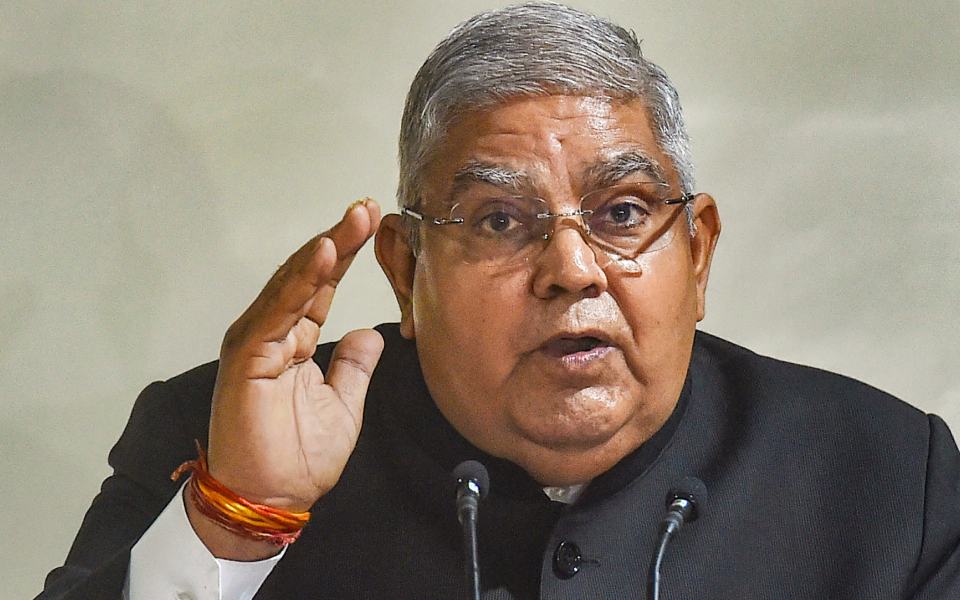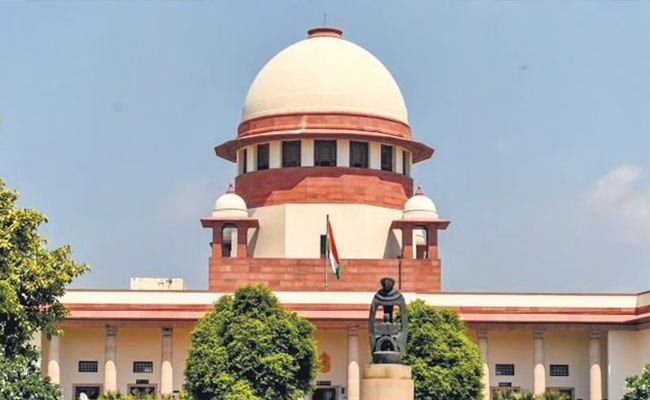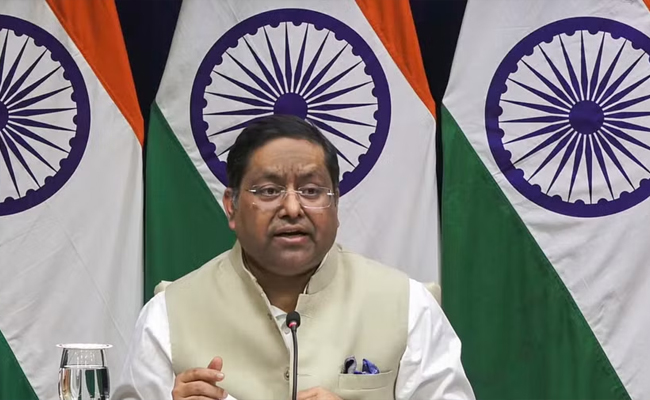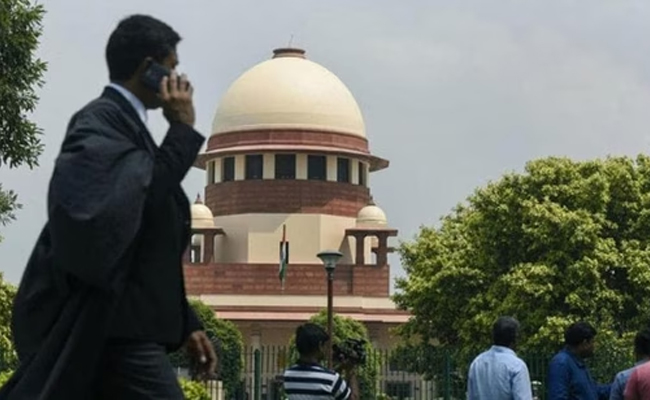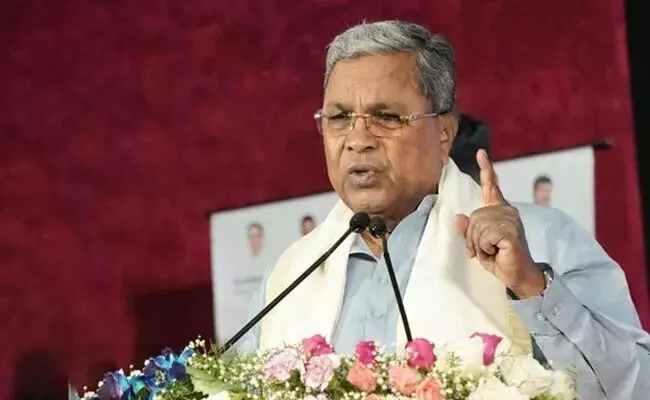Gorakhpur: With foreign exchange reserves of $680 billion, India has come a long a way since the time it had to pledge its gold to tide over a financial crisis, Vice-President Jagdeep Dhankhar said on Saturday.
Dhankhar was speaking during the inauguration programme of Uttar Pradesh Sainik School in Gorakhpur.
"Today's India is not the same as it was 10 years ago. There was a time when the same country, which was referred to as 'sone ki chidiya', had to pledge its gold in foreign banks. Back then, our foreign exchange was between $1 billion and $2 billion. Today, it is $680 billion. Look at the kind of progress we have made since," he said.
India's foreign exchange reserves jumped by $2.299 billion to a new high of $683.987 billion for the week ended on August 30.
The vice-president also showered praise on Prime Minister Narendra Modi for India's turnaround and said Uttar Pradesh under Chief Minister Yogi Adityanath also played a crucial role in it.
"A deserted Srinagar welcomed me when I visited Kashmir in 1990. Now, over the last two to three years, two crore tourists have visited (Kashmir)," Dhankhar said.
Article 370, which the makers of the Constitution called "temporary", was considered "permanent" by some. In this decade, it has been abolished. This is today's India, he added.
Dhankhar further said, "If we compromise with nationalism, it will be a betrayal to the nation. Those who are doing this need to be made to understand. Otherwise, the public will have to spiritually retaliate against them. How can anyone imagine that conditions like those in the neighbouring country can take place in this great India? It cannot be done." "Whenever someone questions the nation, we will not tolerate it. I am sure this will not happen," the vice-president said.
He claimed India was on a very big journey, which will culminate in 2047 on the centenary of Indian independence.
"In this marathon march, Sainik School will contribute through its students," Dhankhar said.
"I request you that everyone sacrifice themselves in the 'havan' that is being performed to make India a developed nation. Time has come that we should do what we must for the country, whatever we do will be less," he said.
Terming Uttar Pradesh as "Uttam Pradesh", Dhankhar heaped praise for its development on Adityanath.
"Today, under the leadership of Prime Minister Narendra Modi, Uttar Pradesh has made a qualitative contribution in the distinct and strong identity of India," he said.
Referring to the changes in Uttar Pradesh under Adityanath, the vice-president said there had been qualitative growth in education, medicine, entrepreneurship and other fields after 2017.
Before that, Uttar Pradesh was in the grip of fear. Law and order was not good, the common person was troubled, he alleged.
Dhankhar said Adityanath had done wonderful and miraculous work by completing construction of the Sainik School in just three years, praising its swift establishment as nothing short of a miracle.
"Although the echo of Yogi ji's miraculous work is heard everywhere, it was difficult and unimaginable to build and run a Sainik School in three years but there was also faith that Chief Minister Yogi would do it," he said.
Spread over 49 acres, the school has been built at a cost of Rs 176 crore. Established with the mission of "Yuvaaon ko Shiksha, Desh ki Raksha," it will offer residential education for boys and girls from classes 6 to 12.
Adityanath was also present during the inauguration.
Earlier in the day, the chief minister welcomed Dhankhar following his arrival at Gorakhpur airport.
Dhankhar also commended the world-renowned Gita Press in Gorakhpur.
He recalled Adityanath's mentor, Mahant Avaidyanath, noting his "historic decision" in 1994 to announce the current Uttar Pradesh chief minister as his successor.
During the inauguration ceremony, Adityanath presented Dhankhar with a shawl and a terracotta statue of Lord Ganesh.
Minister of State (Independent Charge) for Secondary Education Gulab Devi presented a terracotta statue of Lord Ganesh to the vice-president's wife Sudesh Dhankhar.
Dhankhar and Adityanath also inspected the school. They visited the classrooms, playground, swimming pool and the residential complex. They also tried their hand at shooting at the new Eklavya range.
Let the Truth be known. If you read VB and like VB, please be a VB Supporter and Help us deliver the Truth to one and all.
New Delhi (PTI): Broken relationships, while emotionally distressing, do not automatically amount to abetment of suicide in the absence of intention leading to the criminal offence, the Supreme Court on Friday said.
The observations came from a bench of Justices Pankaj Mithal and Ujjal Bhuyan in a judgement, which overturned the conviction of one Kamaruddin Dastagir Sanadi by the Karnataka High Court for the offences of cheating and abetment of suicide under the IPC.
"This is a case of a broken relationship, not criminal conduct," the judgment said.
Sanadi was initially charged under Sections 417 (cheating), 306 (abetment of suicide), and 376 (rape) of the IPC.
While the trial court acquitted him of all the charges, the Karnataka High Court, on the state's appeal, convicted him of cheating and abetment of suicide, sentencing him to five years imprisonment and imposing Rs 25,000 in fine.
According to the FIR registered at the mother's instance, her 21-year-old daughter was in love with the accused for the past eight years and died by suicide in August, 2007, after he refused to keep his promise to marry.
Writing a 17-page judgement, Justice Mithal analysed the two dying declarations of the woman and noted that neither was there any allegation of a physical relationship between the couple nor there was any intentional act leading to the suicide.
The judgement therefore underlined broken relationships were emotionally distressing, but did not automatically amount to criminal offences.
"Even in cases where the victim dies by suicide, which may be as a result of cruelty meted out to her, the courts have always held that discord and differences in domestic life are quite common in society and that the commission of such an offence largely depends upon the mental state of the victim," said the apex court.
The court further said, "Surely, until and unless some guilty intention on the part of the accused is established, it is ordinarily not possible to convict him for an offence under Section 306 IPC.”
The judgement said there was no evidence to suggest that the man instigated or provoked the woman to die by suicide and underscored a mere refusal to marry, even after a long relationship, did not constitute abetment.

